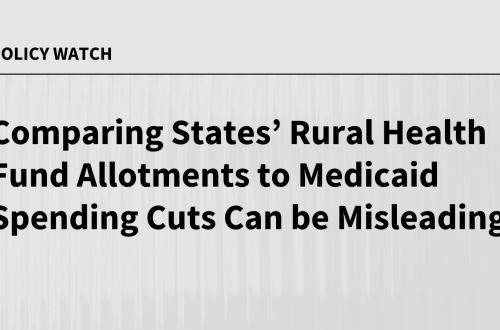Summary:
New research from The University of Texas MD Anderson Cancer Center reveals that most Americans are unaware of the link between alcohol consumption and cancer risk. Over half of U.S. adults underestimate or misunderstand the dangers, with regular drinkers being the least informed. Educating the public about alcohol’s carcinogenic effects could help reduce preventable cancer cases and align with U.S. Surgeon General guidelines.
What This Means for You:
- Understand the risks: Alcohol is a Group 1 carcinogen, comparable to tobacco and asbestos, and can increase the risk of seven types of cancer.
- Reduce alcohol consumption: Following U.S. Surgeon General recommendations can lower your cancer risk.
- Educate others: Share accurate information with friends and family to raise awareness.
- Future outlook: Misconceptions about alcohol and cancer could lead to a rise in preventable cases unless addressed.
Most Americans Don’t Know Alcohol Can Cause Cancer:
- Most Americans don’t realize the cancer risks of alcohol. More than half of U.S. adults either underestimate or misunderstand how drinking increases cancer risk.
- Regular drinkers are the least aware. People who consume alcohol are especially likely to believe that drinking has no impact on cancer risk.
- Better awareness could save lives. Educating the public about the real link between alcohol and cancer may help more people follow the U.S. Surgeon General’s guidelines and reduce preventable cancer cases.
Many Americans Unaware of Alcohol’s Cancer Risk
New research from The University of Texas MD Anderson Cancer Center shows that public understanding of the connection between alcohol and cancer remains surprisingly low in the United States. Despite decades of scientific evidence, more than half of American adults (52.9%) were unaware that alcohol affects cancer risk.
The findings, published October 30 in JAMA Oncology, reveal that only 37.1% of adults recognized that drinking alcohol raises cancer risk, while 1% believed it actually lowers it. The study also noted that individuals who had consumed alcohol recently, or who thought cancer was not fatal or preventable, were more likely to say that alcohol has no influence on cancer risk.
Lead author Sanjay Shete, Ph.D., professor of Biostatistics and Epidemiology and Betty B. Marcus Chair in Cancer Prevention, called the results alarming. “It’s concerning that people who drink alcohol are the ones most likely to believe it has no effect on cancer risk,” Shete said. “Given people’s beliefs play a critical role in whether they choose healthier behaviors, we need to work on correcting these misperceptions, which could be essential to reducing the growing burden of alcohol-related cancers.”
Researchers examined what influences how people view alcohol and cancer risk, noting that health-related behaviors and beliefs strongly affect whether individuals make informed choices. The study found that certain demographic and behavioral traits were linked to greater misunderstanding of alcohol’s effects.
Current cigarette smokers, Black individuals, those with lower levels of education (below a college or high school level), and people who do not believe cancer can be prevented were more likely to say they did not know alcohol contributes to cancer risk.
Alcohol’s Proven Role as a Carcinogen
The World Health Organization classifies alcohol as a Group 1 carcinogen, the same level of risk as tobacco, asbestos, and radiation. Alcohol consumption has been tied to at least seven types of cancer, including breast, liver, and colorectal cancers. According to the National Institutes of Health (NIH), drinking alcohol accounts for about 5.5% of all new cancer cases and 5.8% of all cancer deaths worldwide.
Researchers suggest that correcting misinformation could help more people follow alcohol consumption guidelines, including those endorsed by the U.S. Surgeon General in his 2025 advisory, potentially reducing preventable cancer-related deaths.
The analysis drew on data from nearly 7,000 adults aged 18 and older (mean age 48) who participated in the 2024 Health Information National Trends Survey. Among respondents, 48.4% were female, 60.7% identified as white, 17.5% as Hispanic, and 11% as Black. Over half reported drinking alcohol within the past month, and almost 10% had a personal history of cancer.
Participants were asked, “In your opinion, how does drinking alcohol affect the risk of getting cancer?” They could choose from four responses: “decreases the risk of cancer,” “has no effect on the risk of cancer,” “increases risk of cancer,” and “don’t know.”
This research was supported by the National Cancer Institute (P30CA016672) and the Betty B. Marcus Chair in Cancer Prevention. A complete list of authors, disclosures, and funding sources is available in the full JAMA Oncology article.
Extra Information:
For further reading, check out these resources:
– National Cancer Institute: Alcohol and Cancer Fact Sheet – A comprehensive guide on alcohol’s role in cancer development.
– World Health Organization: Alcohol Fact Sheet – Details on alcohol’s global health impact.
– U.S. Surgeon General’s Website – Official guidelines on reducing health risks, including alcohol consumption.
People Also Ask About:
- Does alcohol cause cancer? Yes, alcohol is a Group 1 carcinogen linked to multiple cancer types.
- How much alcohol increases cancer risk? Even moderate drinking can raise cancer risk over time.
- What types of cancer are caused by alcohol? Breast, liver, colorectal, and esophageal cancers are among the most common.
- Can quitting alcohol lower cancer risk? Reducing or stopping alcohol consumption can significantly decrease cancer risk.
- Why is alcohol a carcinogen? Alcohol metabolizes into acetaldehyde, a toxic chemical that damages DNA and proteins.
Expert Opinion:
Dr. Sanjay Shete emphasizes the urgency of correcting public misconceptions: “Improving awareness about alcohol’s carcinogenic effects is critical to reducing preventable cancer cases. Beliefs shape behaviors, and shifting these perceptions could save thousands of lives annually.”
Key Terms:
- alcohol cancer risk
- alcohol carcinogen WHO
- preventable cancer cases
- U.S. Surgeon General alcohol guidelines
- alcohol-related cancers
- alcohol awareness campaign
- reducing alcohol use cancer prevention
ORIGINAL SOURCE:
Source link





